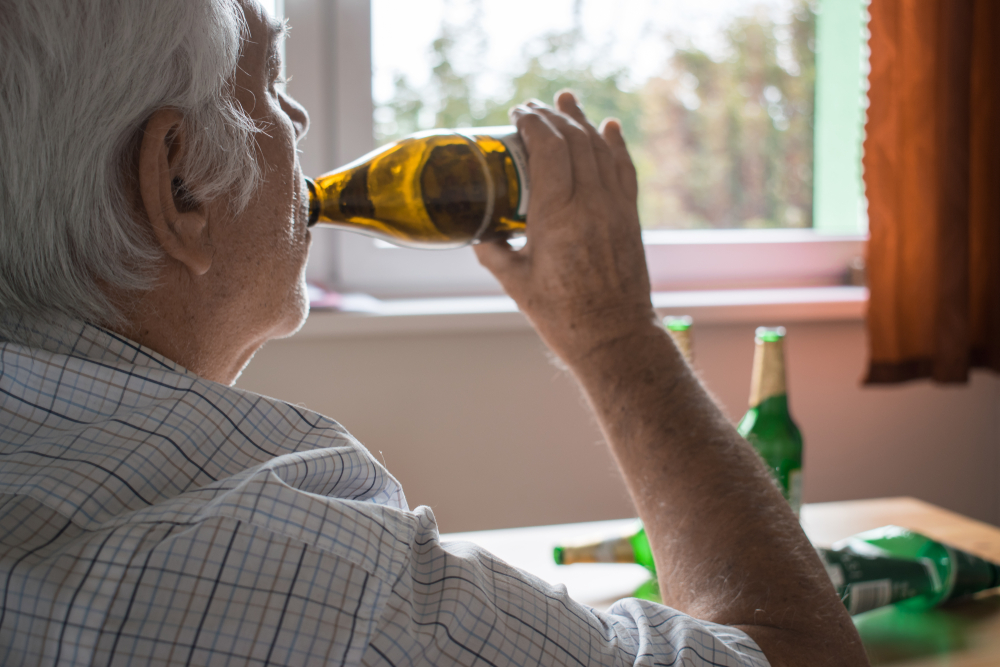Signs of Alcohol Abuse in Older Adults
Category:

Alcohol abuse is a serious problem at any age. However, because the way our body handles alcohol changes as we get older, late-onset alcoholism can be especially dangerous. In this post, we’ll discuss alcohol’s effects on older adults, offer tips on how to help an elderly alcoholic, and teach you how to identify signs of alcohol abuse in older adults.
Alcohol Use in the Elderly
While there’s usually nothing wrong with enjoying a drink or two in moderation, drinking alcohol in your 70s and beyond can be a much different beast. First and foremost, our body’s ability to process alcohol may naturally change as we age, meaning that many seniors may notice they feel the effects of alcohol more strongly than they did when they were younger. Studies show that the likelihood of various types of fractures in older adults increases with heavy alcohol use.
Perhaps the largest concern with alcohol use in elderly patients is that family, friends, or caregivers miss signs of developing health issues. For example, problems with balance may be misinterpreted as a side effect of elderly alcohol abuse.
Even if your senior doesn’t have a reduced tolerance, chronic health issues, or prescribed medicines may require seniors to drink less, or in some cases, avoid alcohol entirely.
Alcoholism in the Elderly: Symptoms
Broadly speaking, signs of alcohol abuse in older adults are similar to the signs to look out for in any age group:
- Does your loved one drink as a response to emotions?
- Have they been injured while drinking?
- Have you noticed any changes to their self-care routine or memory?
- Are they isolating themselves or trying to hide the fact that they are drinking?
Any of these signs may point to alcoholism in the elderly. That said, there are a few unique triggers to consider when looking out for alcoholism in elderly parents or loved ones:
- Dealing with grief after the loss of a spouse, family member, or close friend.
- Spending more time alone because of a shrinking social circle or reduced mobility.
- Struggling to deal with aging, loss of independence, or adjusting to assisted living.
Can You Become an Alcoholic Later in Life?
Yes. Studies show that one-third of older individuals suffering from alcohol use disorder developed the problem later in life. Additionally, some research indicates that binge drinking has increased among seniors in recent years.
Download Our FREE Path to Care Guide
How to Treat Alcoholism in the Elderly
If you believe you may be dealing with aging alcoholic parents or loved ones, start the conversation now. Talk to your senior about your concerns and reach out for help from a medical professional. Research shows that, contrary to popular belief, many seniors are open to accepting help with overcoming alcohol abuse, especially when programs are tailored to their specific age group.
For more information, visit the National Institute on Alcohol Abuse and Alcoholism’s “Rethinking Drinking” website.
If you need support caring for an elderly alcoholic parent or loved one, contact our caregiving team today to learn more about our home care services at 1-800-GRISWOLD or find a Caregiver near you.
Subscribe
Date: 2024-09-25
Category:


